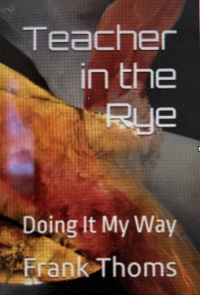Face to Face: An effort to preserve humanity
Not only do we observe so much more than our headshots, but we see gestures, the intricacies of facial expressions, body language. We notice, whether we are aware at the time, of how responders position themselves when we speak. Do they lean in, lay back, make eye contact? How do they gesture? What do they do with their hands? These and other actions, again we may not be consciously observing, are happening and we are reacting. Everyone in the room is having the same experience.
As a teacher, I treasured my classroom moments with my students. It was us, just us, being together. I saw most of my teachers from elementary school through college standing at the front of the room (except for seminars), and I was instructed to teach that way in my student teaching days. In my first year, I quickly found myself in the middle of the room, metaphorically and literally. In the spring. I arranged my desks into a horseshoe pattern. I wanted my students to see each other’s faces, plain and simple. More than fifty years later, I titled my first book, Teaching from the Middle of the Room: Inviting Students to Learn. In nearly all my books, I advocate the classroom without devices as a last best hope for humanity.
What is the message from having to look at the backs of heads of classmates? It means that it’s time to pay attention to what’s happening up front. You will be told what you need to know. You may ask questions, but most likely the answers will come from the teacher at the front. Some of you may well have had wonderful teachers up front who orchestrated an interactive classroom, but I bet they were few and far between.
Given the furious thrust of today’s digital impacts, I imagine you might think me a Luddite for advocating face-to-face encounters. Humans have always been conversationalists emerging around campfires in hunter-gatherer times. Even when writing appeared and followed by printing, humans never let go of being in one another’s presence to find connections, being together for good and bad. Radio, television, the internet, the smartphone have threatened to isolate us, but we are resistant. Meetup groups are but one example.
Removing phones from schools––New Hampshire and Vermont did so recently––addresses the human need to be together without intermediary devices. Teachers need phones set aside to teach, students need to have them away to learn and be in a room where learning becomes possible for both teacher and students.
The magic of being together face to face, which I took for granted in my fifty years in the classroom, now feels like a precious commodity. I wonder ten-to-twenty years from now if we can keep this precious commodity in our schools, in our lives. But the insights I discovered at my breakfast conversation with friends convinces me to hold onto the energy, connections, and the joy I feel when in the presence of others. And what I learned in my years in the classroom, and the more often when my friends and I meet at breakfast, the richer our conversations become, the more we come away with. It was notably less so when we met on Zoom.

